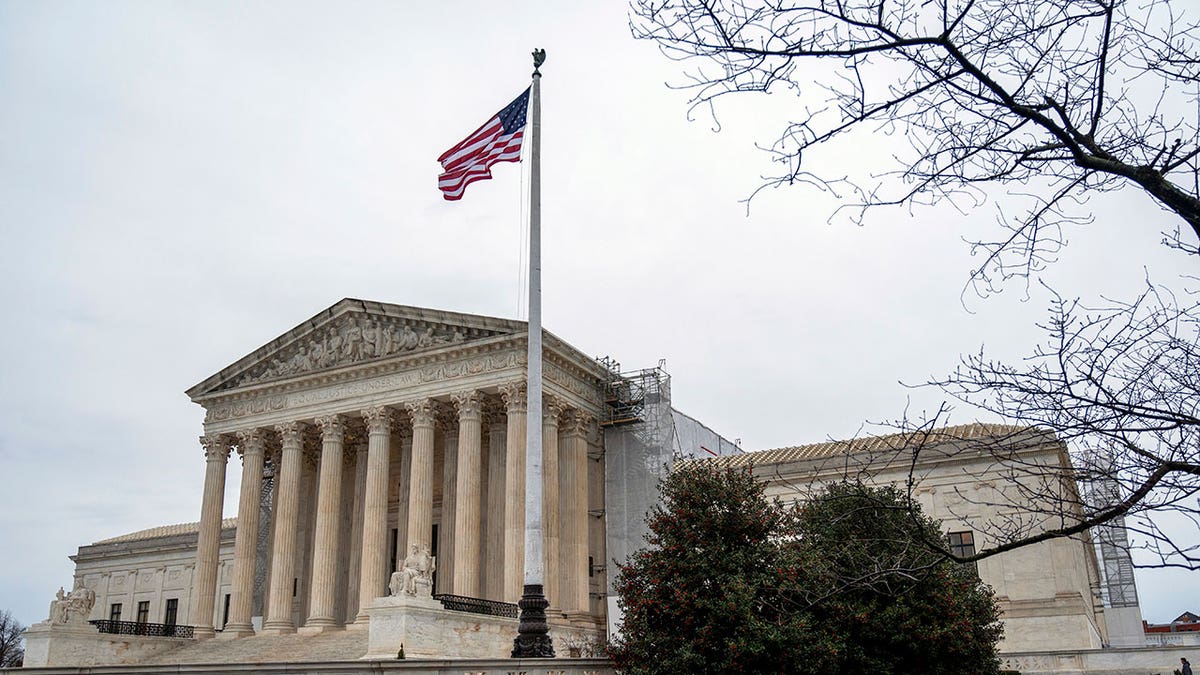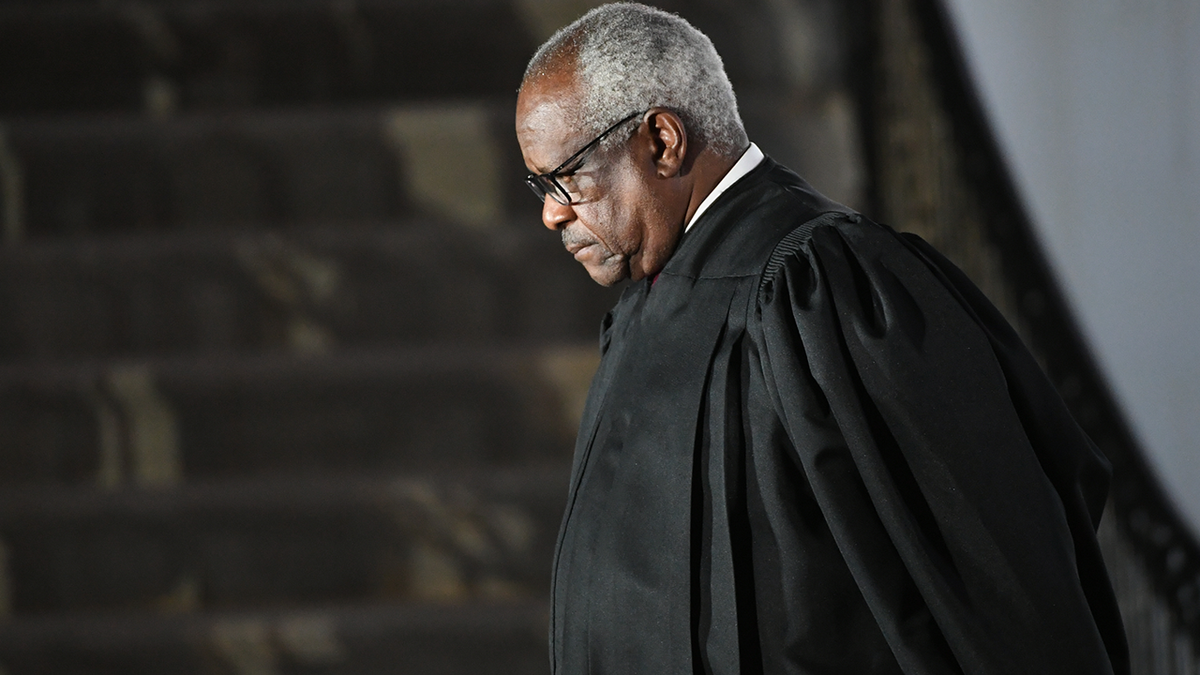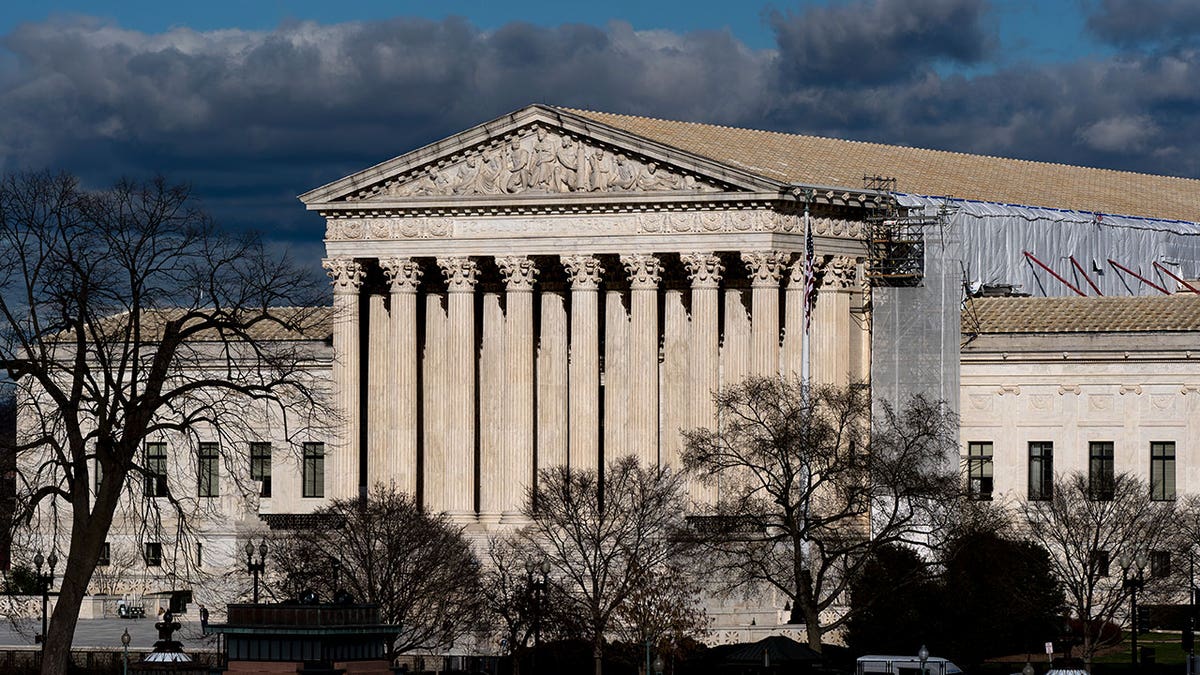Supreme Court to hear arguments over law limiting social media censorship
Florida Republican Attorney General Ashley Moody on the state pushing for a limit on social media censorship in front of the Supreme Court
A divided US Supreme Court cast doubt on Monday over calls to limit the ability of the federal government to communicate with social media platforms and the news media about publishing third-party content on controversial or potentially dangerous topics like vaccines, election interference, and terrorism.
In nearly two hours of oral arguments in a free-wielding free speech dispute, the justices debated whether the Biden administration crossed the constitutional line, and whether its outreach efforts with private companies amounted to permissible persuasion or encouragement versus illegal coercion or threats of retaliation.
Two Republican-led states and several private parties had sued, claiming First Amendment violations by the Biden administration, accused of improperly coordinating with tech firms to remove or limit information posted by private users on their sites.
They say it amounted to censoring what some users said about Covid treatments, election security, and other issues the powerful federal government might subjectively find misleading or problematic.
THIS WAS CENSORSHIP BY SURROGATE: JIM JORDAN
"It's got these big clubs available to it and it's so it's treating Facebook and these other platforms like their subordinates," said Justice Samuel Alito.
But others on the bench took another approach.
"Your view has the First Amendment hamstringing the federal government, in significant ways in the most important time periods," Justice Ketanji Brown Jackson told the lawyer representing Louisiana, Missouri and the private plaintiffs. "The government actually has a duty to take steps to protect the citizens of this country... by encouraging or even pressuring platforms to take down harmful information."
Dozens of protesters gathered in front of the court, mostly opposing the administration's efforts.

The Supreme Court is photographed, Feb. 28, 2024 in Washington. (AP Photo/Jacquelyn Martin, File)
This is the latest case at the Supreme Court testing how federal and state governments, big tech platforms, and private users can operate in an increasingly crowded and contentious digital space.
The lawsuit alleges 67 federal agencies and officials coerced platforms like Facebook and Twitter/X to censor individual posts, primarily related to COVID-19 restrictions imposed by the past two administrations, as well as the 2020 presidential election results.
Those cited include White House communications staffers, the surgeon general, the FBI, and the U.S. cybersecurity agency.
The Justice Department told the high court the president and agencies under his control have long enjoyed a "bully pulpit" to try and persuade citizens and companies, in ways that advance the public interest. That includes areas like public health, voting integrity, and national security threats.
NEW MEXICO COUNTY COMMISSIONER WHO PARTICIPATED IN JAN 6 RIOT LOSES SUPREME COURT APPEAL
But a federal appeals court ruled against the administration, saying officials could not "coerce or significantly encourage" changes in online content.
In oral arguments, conservative justices were most vocal against the federal government's actions, which Alito in October – when the appeal first arrived at the high court – said was "heavy-handed tactics to skew the presentation of views on the medium that increasingly dominates the dissemination of news."
Justice Clarence Thomas asked at one point, suggesting how the federal government might subtly coordinate with tech firms. "You just work together, said: Look, we're right; they're wrong. Let's work together. You know, we're on the same team. Let's work together to make sure that this misinformation doesn't gain sort of any following."
But several of their conservative colleagues were concerned about hamstringing the federal government too severely. One hypothetical raised in court was how to respond to an epidemic sprouting online, where young people were being encouraged as a dare or stunt to record themselves jumping off windows to the ground below, at ever-increasing heights.

Clarence Thomas, associate justice of the U.S. Supreme Court, listens during a ceremony on the South Lawn of the White House in Washington, D.C., U.S., on Monday, Oct. 26, 2020. The Senate voted 52-48 Monday to confirm Amy Coney Barrett to the U.S. Supreme Court, giving the court a 6-3 conservative majority that could determine the future of the Affordable Care Act and abortion rights. (Photographer: Al Drago/Bloomberg via Getty Images)
"The government is not monolithic either," said Chief Justice John Roberts, using another hypothetical. "Maybe EPA is trying to coerce a platform about something, and the Army Corps of Engineers is trying to coerce them the other way? I mean, you can't just sort of pick and choose which part of the government you're concerned about."
Roberts prefaced his remarks with a lighthearted aside, "I have no experience coercing anybody," which brought laughter to the courtroom.
When the lawyer for the plaintiffs argued the federal government was indirectly engaging in "encouragement" with platforms, Justice Amy Coney Barrett interjected.
"Just plain vanilla encouragement, or does it have to be some kind of significant encouragement? Because encouragement would sweep in an awful lot."
Justice Elena Kagan raised national security concerns.
FORMER SUPREME COURT JUSTICE STEPHEN BREYER SOUNDS OFF ON DOBBS DECISION: 'TOO MANY QUESTIONS'
"Terrorists engage in things that come under the First Amendment. Let's say they're just recruiting people for their organizations" online, she asked. "There's all kinds of things that can appear on these platforms that do all kinds of different harms, and the inability of government that you're suggesting to reach out to these platforms and say: we want to give you information that you might not know about on this.
President Biden himself has used social media to bluntly promote vaccinations. In a controversial July 2021 Facebook post, he wrote, "They’re killing people... The only pandemic we have is among the unvaccinated, and they’re killing people." Biden later pulled back on those comments.
The current debate comes in a national election year, where there is heated public discourse on ballot integrity and voting regulations.
"The question before the justices this morning is actually a fairly simple one. It's whether the government went too far," said Thomas Dupree, former top official in the Justice Department under President George W. Bush. "This administration leaning very heavily on these social media companies to take down content that the government didn't like. Some of it concerned vaccine or health related information. Others concerned election related information. But it's very different and it's challenging if you're a tech company and the government with all of its powers at its disposal, calls you up and says: Hey, we don't like this post that we're seeing on your website, We think that you need to take it down."

The Supreme Court is seen in Washington, March 7, 2024. (AP Photo/J. Scott Applewhite, File)
The high court in February heard separate arguments over a challenge to social media company policies that deal with subjectively "problematic" content.
The justices debated laws in Florida and Texas from 2021 that would restrict the ability of big social media companies like Instagram and YouTube to decide what third-party material they wish to publish.
The regulations aim to address what some lawmakers call "censoring" of conservative messages, and banning politicians like former President Trump, for violating subjective policies over offensive or "problematic" content.
Separately, the justices Friday issued rulings that public officials can be held liable in some cases for blocking critics on social media.
CLICK HERE TO GET THE FOX NEWS APP
The court laid out new rules on the free speech limits of government workers, and when their "mixed use" social media accounts cross the line from personal; conduct to official business.
The case argued Monday is Murthy v. Missouri (23-411). A decision is expected by early summer.





